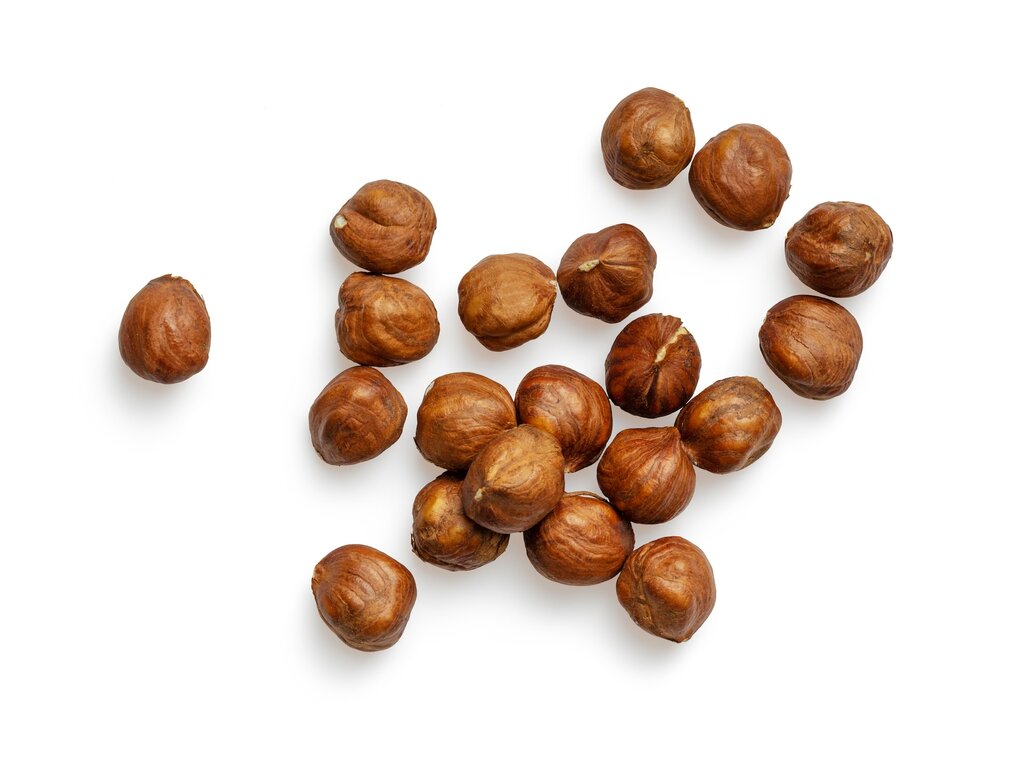The Heart and Brain Benefits of Hazelnuts

Hazelnuts, also known as filberts, are a type of nut that is native to Turkey. They are rich in vitamins, minerals, and antioxidants and have been shown to provide numerous health benefits. Recent studies have shown that hazelnuts may benefit the heart and brain.
For example, one study found that hazelnuts reduced LDL (bad) cholesterol and increased HDL (good) cholesterol in people with high cholesterol. Hazelnuts are also a good source of vitamin E, essential for cognitive function, and linked to a lower risk of Alzheimer's disease.
In this article, we will take a closer look at the potential benefits of hazelnuts for the heart and brain.
What are hazelnuts?
Hazelnuts, also known as filberts, are nuts native to Europe and Asia. They are typically round in shape and have brown or reddish-brown skin. The nuts are encased in a hard shell that must be cracked open to access the edible kernel.
Hazelnuts are a good source of protein, fiber, vitamins, and minerals. They contain high monounsaturated fatty acids, which have been shown to promote heart health by reducing LDL (bad) cholesterol levels and increasing HDL (good) cholesterol levels. Hazelnuts are also a rich source of antioxidants, including vitamin E, which can help protect cells from damage caused by free radicals.
Studies have found that consuming hazelnuts may help improve cognitive function and reduce the risk of Alzheimer's disease. Hazelnuts contain high levels of flavonoids, compounds that have been shown to promote brain health by improving blood flow and oxygenation to the brain.
In addition to their many health benefits, hazelnuts are a delicious addition to baked goods, salads, and main dishes. They can be enjoyed raw, roasted, or ground into a meal or flour.
Nutritional value of hazelnuts
Hazelnuts are an excellent source of nutrition, providing many essential nutrients for the body. They are a good source of dietary fiber and contain high levels of monounsaturated fats, which are beneficial for heart health. Hazelnuts also contain magnesium, copper, manganese, and vitamins E and B6. These nutrients are essential for maintaining brain function and preventing cognitive decline.
Cardiovascular benefits of hazelnuts
Hazelnuts are rich in heart-healthy fats and antioxidants, which make them beneficial for the cardiovascular system. The monounsaturated fats in hazelnuts can help to lower cholesterol levels and reduce the risk of heart disease.
Hazelnuts are also a good source of vitamin E, which is an antioxidant that helps to protect the cells from damage. Also, hazelnuts contain magnesium, a mineral associated with a reduced risk of heart disease.
Neurological benefits of hazelnuts
Hazelnuts are an excellent source of vitamin E, a powerful antioxidant that helps protect the brain and nervous system against damage from free radicals. Hazelnuts are also a good source of magnesium, a mineral that is essential for nerve and muscle function.
Furthermore, hazelnuts contain compounds that can help to improve blood flow to the brain.
Recipes containing hazelnuts
Countless recipes contain hazelnuts, also known as filberts. Here are some of our favorites:
- Hazelnut and Chocolate Spread: This dreamy spread is perfect on toast, in crepes, or straight off the spoon!
- Hazelnut Praline Biscuits: Buttery biscuits with a hazelnut praline filling are truly irresistible!
- Roasted Hazelnut and Rice Salad: A hearty and nutritious salad perfect for a summer lunch or light dinner.
- Chocolate Hazelnut Tart: A rich and decadent tart that makes an impressive dessert for any occasion.
Conclusion
Hazelnuts are a nut that offers many benefits for the heart and brain. They are high in healthy fats, antioxidants, and other nutrients that can help promote health. Studies have shown that hazelnuts can help improve cholesterol levels, blood pressure, and cognitive function.
They may also reduce inflammation and help protect against age-related damage to the brain. Hazelnuts make a great addition to any diet, so be sure to add them to your grocery list next time you're at the store.
